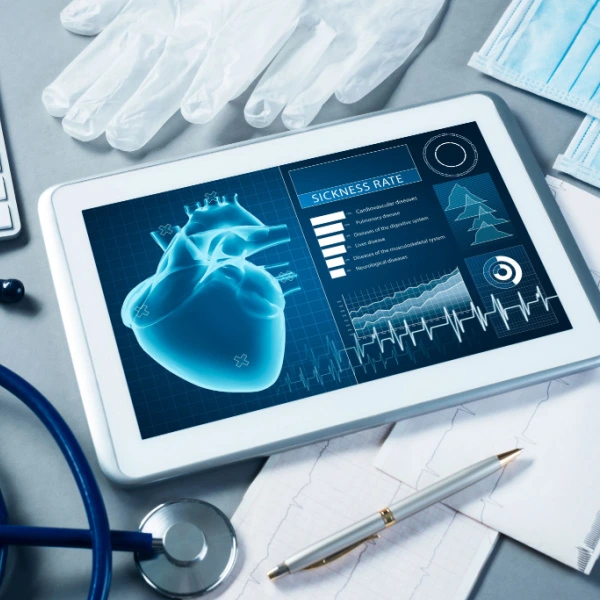The healthcare industry is one of the most technologically advanced verticals in the world. Over the past few years, technological advancements spiked due to the pandemic. Hospitals had to make many adjustments as they tried to avoid the contagious virus, and patients opted for virtual care instead. Although the pandemic caused chaos for many industries, it has helped the healthcare space adopt more technologies for better accessibility and convenience. Here are some medical technologies that will continue to change the game for providers.

Wearable Fitness Technology
Technologies in the healthcare industry are not limited to hospital use only. Today we see people walking around with wearable technology that helps them with their everyday fitness. According to HIMSS, wearable technology is used for fall identification and prevention, physical activity monitoring, and weight control. The data collected in wearables will be beneficial not only for consumers but also for healthcare providers when treating patients. As the demand for wearables continues to grow, we can assume that companies will look to improve the technology to be more helpful in the future.
Increase Your ROI by Investing in AirFinder Everywhere
- Loss Prevention. Reduce the amount of loss that occurs during the supply chain process
- Location Coverage. AirFinder Everywhere uses a combination of GPS, Cellular, and WiFi to determine location everywhere
- Security Alerts. Know when a delay in shipment has occurred so the problem can be addressed immediately.
Digital Therapeutics
Patients with conditions like diabetes, asthma, cancer, or insomnia (to name a few) require ongoing care. Physicians have been coming across digital therapeutics as a solution for patients that have chronic illnesses. Deloitte describes digital therapeutics as “software products used in the treatment of medical conditions.” This technology focuses on delivering clinical outcomes and allows physicians to monitor their patients without coming in for a visit. Another key factor is its ability to help personalize the treatment for patients. Physicians can review the data stored to personalize patient treatment and decrease the chance of complications.
Remote Patient Monitoring
As mentioned earlier, the pandemic resulted in technological advancements in healthcare, and one key area is telehealth. Physicians leveraged technology such as phones, computers, video conferences, and more to provide remote patient monitoring so patients could avoid having to travel and risk exposure to COVID. The technology has become popular with patients and physicians as it made for more intentional appointments because it worked conveniently for their schedules. Even though COVID restrictions are becoming less strict, it is safe to say that this option in healthcare is here to stay.
RTLS
A form of technology proving to be valuable is RTLS (Real-Time Location System). The technology allows hospitals to keep track of high-value equipment through asset tracking and has helped improved efficiency for clinical and biomedical staff. Hospitals can cut search times for lost or hoarded equipment providing them more time to care for patients. RTLS solutions like AirFinder can help manage PAR level inventory and eliminate “cannot find lists.”
Internet of Things
All these technologies operate with IoT (Internet of Things). This game-changing technology has enabled physical devices to connect to the internet and provided many industry benefits. The ability for patients to keep track of their health through wearables and get care in the comfort of their homes are just a few of the wins that the IoT has provided. In this fast-paced era of technology advancement, we see hospitals leveraging tech to deliver better patient care while improving their outcomes.
IoT Asset Tracking for Healthcare
AirFinder is an IoT platform that provides asset tracking indoors, outdoors, and everywhere in between. This solution helps hospitals locate their equipment and ensure compliance with the data collected throughout use. If you are interested in learning more about our solutions and how they can benefit your hospital, visit our website or talk to one of our experts and request a demo.




